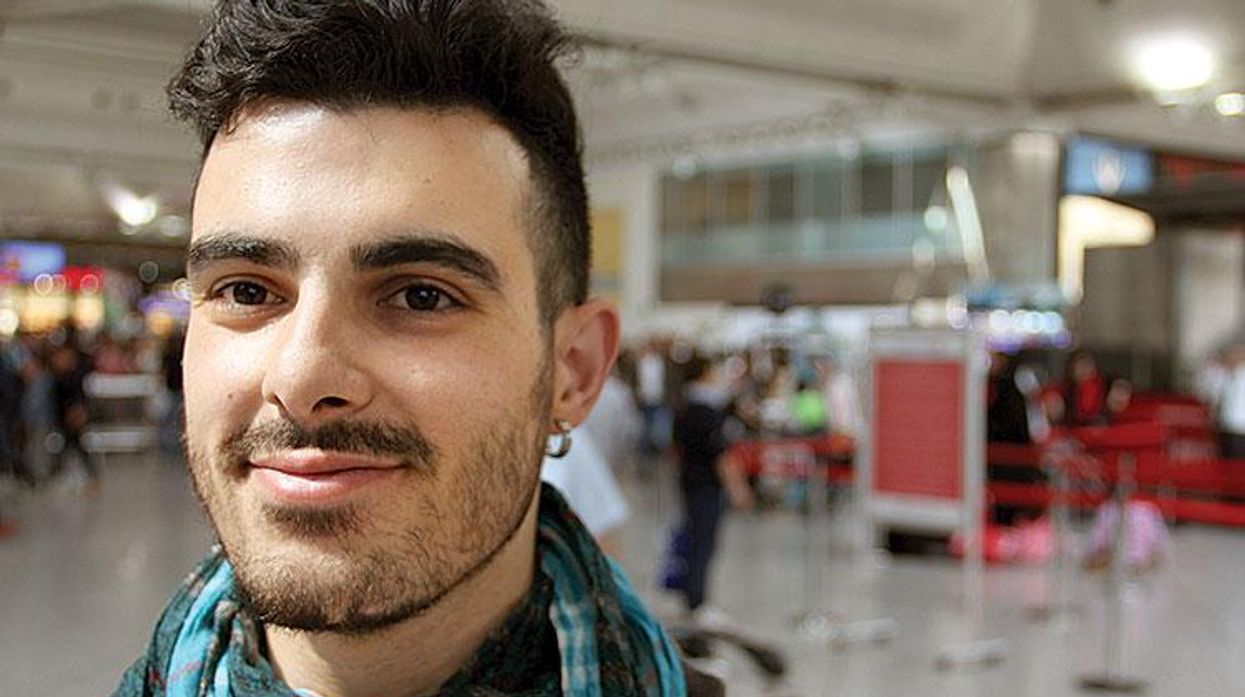
Life for gay men in Syria, like Subhi Nahas, has become unendurable with the rise of ISIS, but things were bad long before the militants took power.
November 11 2015 6:36 PM EST
By continuing to use our site, you agree to our Privacy Policy and Terms of Use.

Life for gay men in Syria, like Subhi Nahas, has become unendurable with the rise of ISIS, but things were bad long before the militants took power.
In August, Subhi Nahas made history, testifying before the United Nations Security Council's first summit on violence against LGBT people by the so-called Islamic State.
Speaking to a packed room that included an extraordinary number of U.N. member states, Nahas and an Iraqi gay man, who appeared by phone to protect his identity, shared their experiences as LGBT people in their home countries. Participants sat in attentive silence as they heard the shocking details of the men's experiences being beaten, imprisoned, and threatened with death, as well as their terror when they learned about the fate of gay men they knew, or saw the widely publicized videos of ISIS executing allegedly gay men.
Nahas tells his story to James McDonald.
Before the revolution, the regime forces of President Bashar al-Assad were doing a routine sweep at a checkpoint while I was on my way to university, and they took all the young people to a detention place, a house in the woods. Immediately I could see that there had been people there before. I could see their blood, their stains. They noticed that I'm a little bit different in the way that I walk and talk, and they started to call me names. They asked questions about my family. They released the others, but they kept me, and I really thought that they would rape and kill me. But then they just released me. I don't know why.
I couldn't risk going back to university, so I stayed home. A few months later, Islamists came and things really deteriorated. My father was at home a lot too, which meant he was seeing me more. He didn't like what he saw, and things got violent.
An Islamist group, an al-Qaeda branch, took over my city of Idlib, in northern Syria, and enforced Sharia law. One day, they arrested someone I knew and accused him of being homosexual, because of something on his phone. They announced in the mosques that they would cleanse the city of sodomites. If you looked a little bit different, wore jeans that were a little bit tight, they would target you and interrogate you for five or six hours.
Within two or three months I planned to leave Syria. Some friends in Lebanon said they'd welcome me to their houses. I arranged a taxi and told the driver that he had to take care of all the procedures at the borders and checkpoints, because if I spoke, they might have noticed how I am and not let me leave.
In Lebanon, there were not a lot of job opportunities. After six months, I moved to Turkey, secured a senior position at a nonprofit, Save the Children, and stayed there for two years. I was living near the Syrian border. As ISIS took more land, things became more dangerous. For a time, I was moving from safehouse to safehouse, until I finally ended up in Istanbul and registered with the United Nations High Commissioner for Refugees.
The killing of gays in Syria was not as brutal before ISIS, but it was happening. ISIS says they are protecting the community from "perverts," people who will destroy society's morality. They can't offer water or services, but they can offer that.
UNHCR interviewed me and accepted me. The United States accepted my case, and I was referred to Homeland Security. It all took about 12 months, and then I moved to San Francisco a few months ago -- I had a job set up already.
I'm a systems administrator with the Organization for Refuge, Asylum, and Migration. The U.N. was looking for people willing to speak about their experiences at a meeting on LGBT abuses around the world. It was going to be the first time that a voice from Asia or the Middle East was heard like that, and I wanted to be a part of it.
There were a lot of countries and organizations there, even two representatives from Syria. And the countries that spoke were very positive -- I was expecting hostility. Russia and China were there but refused to speak. But of those that did speak, everyone wanted to do something; everyone wanted change.
My story is typical, but many others have had to endure far worse horrors. I'm very lucky that I had all this help, and that's what I'm trying to establish with my work: a system that allows people to get help faster, that will protect them where they are now -- and help them when they finally arrive in places like America.
Charlie Kirk DID say stoning gay people was the 'perfect law' — and these other heinous quotes